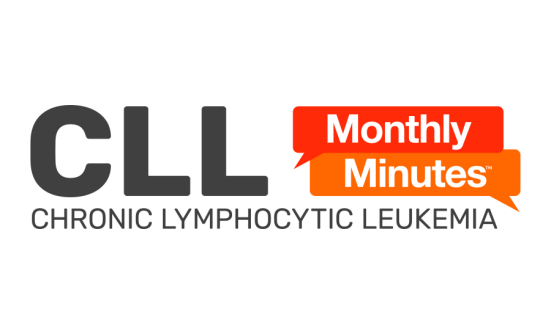Chronic lymphocytic leukemia (CLL) is generally considered incurable, although a number of different treatments are available that can reduce the risk of cancer progression and extend patients’ lives.1 Until recently, CLL treatment often included combining a chemotherapy with a class of drugs called immunotherapies, which modulate the patient’s immune system.2 One combination of such chemoimmunotherapy that was commonly used in the past is chlorambucil (chemotherapy) plus obinutuzumab (immunotherapy).1
Within the past 10 years, treatment for CLL has further changed with the approval of nonchemotherapeutic drugs that target important cancer signaling molecules such as Bruton tyrosine kinase (BTK).1,2 Used alone or in combination with immunotherapy, the BTK inhibitor ibrutinib has been shown to be more effective than chemoimmunotherapy, and therefore has become the standard of care for many patients.1
Acalabrutinib is a next-generation BTK inhibitor that has been developed to achieve the same outcomes as ibrutinib but with fewer of the concerning side effects.3 Early results from the ELEVATE-TN clinical trial (NCT02475681; https://clinicaltrials.gov/ct2/show/NCT02475681) have shown that, in previously untreated patients, acalabrutinib with or without combined immunotherapy is more effective than chemoimmunotherapy consisting of chlorambucil and obinutuzumab after nearly 2.5 years of treatment.1
Recently, investigators presented new data from the ELEVATE-TN trial.4 Of the 535 patients included in this study, half were aged >70 years and 63% of cancers had ≥1 genetic changes predictive of a poor outcome. Patients participating in the trial received treatment and were followed for ≤4 years.4
Notably, half of all patients receiving chemoimmunotherapy in this study showed disease progression or had died by approximately 2 years 4 months.4 However, for patients receiving a regimen containing acalabrutinib, the majority were still alive with no disease progression at the time these data were analyzed.4 In fact, an estimated 87% of patients receiving acalabrutinib plus obinutuzumab were alive without progression at the 4-year mark, compared with 78% of those receiving acalabrutinib alone and 25% receiving chemoimmunotherapy.4
Treatment responses were more likely in patients receiving a regimen containing acalabrutinib, although the percentage of patients achieving a complete response was higher in those patients who received acalabrutinib along with obinutuzumab.4
Side effects that were more commonly seen in patients receiving an acalabrutinib-containing regimen included diarrhea, headache, bleeding, onset of high blood pressure, and abnormal heart rhythm (atrial fibrillation).4 Nevertheless, more patients receiving chemoimmunotherapy quit treatment due to side effects than did those receiving acalabrutinib.4
These new results from the ELEVATE-TN study are in close agreement with those that were previously published and continue to support the use of acalabrutinib with or without obinutuzumab in previously untreated patients with CLL.1,4
References
- Sharman JP, Egyed M, Jurczak W, et al. Acalabrutinib with or without obinutuzumab versus chlorambucil and obinutuzumab for treatment-naive chronic lymphocytic leukaemia (ELEVATE TN): a randomised, controlled, phase 3 trial [published correction appears in Lancet. 2020 May 30;395:1694]. Lancet. 2020;395:1278-1291.
- Astor L. The battle for the front line in CLL moves away from chemoimmunotherapy. Target Ther Oncol. 2020;9:73.
- Isaac K, Mato AR. Acalabrutinib and its therapeutic potential in the treatment of chronic lymphocytic leukemia: a short review on emerging data. Cancer Manag Res. 2020;12:2079-2085.
- Sharman J, Egyed M, Jurczak W, et al. Acalabrutinib ± obinutuzumab vs obinutuzumab + chlorambucil in treatment-naïve chronic lymphocytic leukemia: ELEVATE-TN 4-year follow-up. Presented at the 2021 European Hematology Association Meeting, June 9, 2021. Abstract S148.















